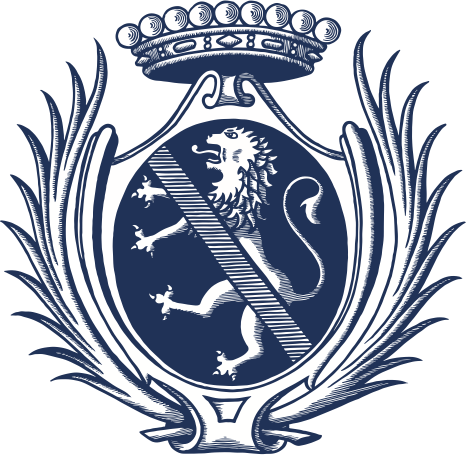The de Menthon family
“If I except the sovereign houses of Savoy, Genevois, Faucigny, no family in the duchy nor in the county of Genevois, can prove, like Menthon, a more considerable feudal power in the 13th century”… Thus spoke Amédée de Foras, historian and heraldist specialist of Savoy, about the Menthons.
A noble family of knightly extraction, its first members would have arrived from Burgundy and, if we go back to 1190, to a certain Jean de Menthon, we can nevertheless consider that it had already acquired a certain power before the year 1000. It is thanks to an exceptional birth rate, particularly during the 13th and 14th centuries, that the Menthons established their influence. Thus, apart from the oldest branch, the family had several other branches: the Menthon-Rochefort, the Menthon-Dingy, the Menthon du Marest, the Menthon-la-Balme, the Menthon-Beaumont-Montrottier, the Menthon-Lornay, the Menthon d’Aviernoz…
Through the centuries
Over the centuries, many Menthons have played an important role in the County of Geneva, then in the Duchy of Savoy and finally in France. Let us mention, among others, Henri de Menthon, bailiff of the Pays de Vaud, Nicod de Menthon, governor of Nice and admiral of the fleet sent by the Council of Basel to Constantinople, Bernard VI de Menthon, who in 1613, upon his nomination as colonel of the Genevan regiment, donated a “large meadow called Pâquier” to the young members of the company of knight shooters for their training. And closer to us, François de Menthon, uncle of the current owners, one of the founders of the French Resistance, companion of the Liberation, Minister of Justice under General de Gaulle, French prosecutor at the Nuremberg Military Tribunal and first President of the Council of Europe, after having actively participated in the creation of Europe. His son Olivier de Menthon (1935-2016), a builder at heart, led a major campaign to restore the estate (roofs, esplanade, reception hall, etc.) to its current appearance.
Saint Bernard de Menthon
If the existence of a lord of Menthon can be traced back to around 1190, the family must have lived there much earlier, since Saint Bernard of Menthon was born there in 1008, according to tradition
Among the archives of the castle of Menthon, a text tells the legend of Saint Bernard of Menthon. Bernard, who was attracted to the religious life at an early age, was nevertheless destined by his parents to marry a rich and noble heiress, Marguerite de Miolans. The story goes that on the eve of his wedding, while he was locked up, Saint Nicholas appeared to him and said “Throw yourself out of the window, angels will hold you”. The bars bent, and Bernard jumped out to go to Aosta where he became archdeacon to the diocesan bishop.
While witnessing the dangers of the mountains, Bernard became the man who delivered the Alpine passes to make them safe. It must be said that the high mountain areas have always been frequented places of passage. In order to allow travelers to escape looting, and sometimes even death, since it was not uncommon to get lost on the way, he founded the hospices of the Great St. Bernard on the old Mont-Joux pass – between Martigny in the Valais and the Val d’Aoste – as well as the hospices of the Little St. Bernard – between the Tarentaise and the Val d’Aoste -. The development of trade and pilgrimages was then greatly favored. Soldier of charity, man of courage, Saint-Bernard dedicated his life to a double mission of hospitality and praise. A spirit of welcome still maintained by the Canons of the Great St. Bernard.

